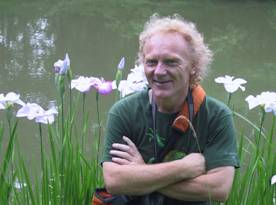
News/Reports
Evolutionary and Ecological Studies In Reimchen’s lab
This is a reference to the work of Dr. Tom Reimchen from his webpage http://web.uvic.ca/~reimlab/index.html
Dr. Reichen was supported in his early research at Drizzle Lake by The Friends of Ecological Reserves.
Summaries of his research in the following areas are illustrated:
- Adaptive Radiation and Functional Morphology
- Haida Gwaii Lakes , Biophysical Data
- Salmon Forest Project
- Publications
- Diving Photos
Additional note May 2021 by Dr. Reimchen: “The following peer-reviewed publications are listed on my website and directly encompass the research at the lake. These are
#8,12,14,15,16,17,19,20,21,22,26,31,32,33,34,36,38,42,50,68,86,97,108,109,112,116, 121, 123,124,126,142,144,147,148 and 149. As well there are many additional publications that are not on the Drizzle Lake Ecoreserve but directly originated from the studies and ideas on loons and stickleback at Drizzle Lake. These include the multiple publications on marine-terrestrial connections (the idea originating in the 1000 marine fish that Red-throated loons bring into the lake every summer). This lead to the widely-recognized Salmon Forest as well as the Science publication on Humans as a Superpredator (#123 on the list) that resulted from my studies on the predator-prey interactions at Drizzle Lake. The identification of the role of the widely recognized vestigial adipose fin and its removal in all aquaculture turned out to be a highly functional fin (#68, 106) based on the direct studies of cutthroat trout at Drizzle Lake. I can go on but the important issue is that this fundamental research and the side-research projects that emerged are the result of the Ecoreserve program and the Friends support for this basic, non-applied and non-utilitarian research. I would generalize and say that of my 140+ publications, over 100 of these are the direct result of the research at Drizzle Lake.
http://web.uvic.ca/~reimlab/index.html

